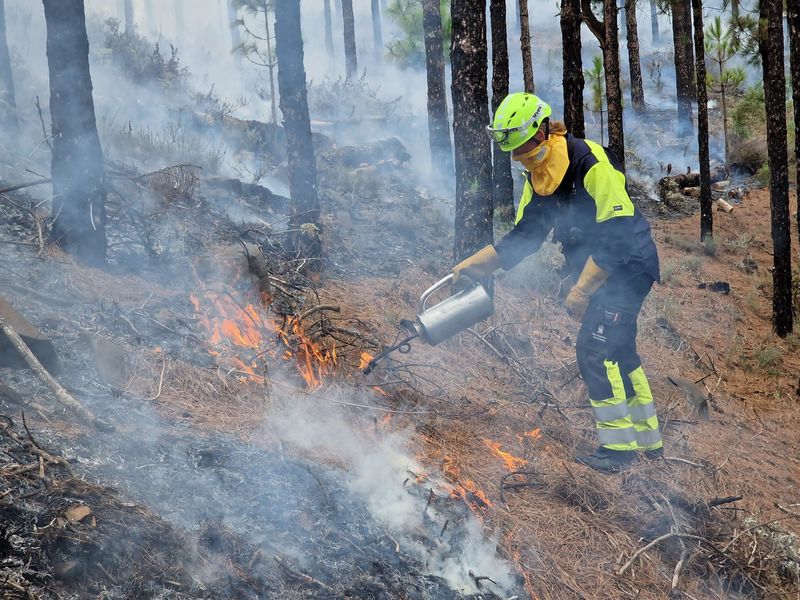In the context of climate change, in the Pyrenees, we are faced with difficulties in managing the interface zones between urban and forest (former agricultural land conquered by the forest vegetation). This represents an increase in the risk of fires, a barrier to ecological continuity (which facilitates the adaptation of species to climate change) and a loss of fodder resources, on which multifunctional activities such as pastoralism depend. This project aims to provide integrated solutions to help the managers of these areas (natural parks, public bodies, inhabitants) to manage these areas sustainably and thus combat climate change and reduce the risk of fire.
To this end, we will make the results of our work available to them: two fire simulation models, which will allow them to organise fire prevention actions, and two technical guides for opening up abandoned land and maintaining these areas once they have been opened up (thanks to techniques such as clearing, silvopastoralism or prescribed burning). Different actors from Catalonia, Andorra and Occitanie (Natural Parks, Territorial Managers, Forestry Schools and Research Institutes and knowledge transfer) will work together from April 2024 to March 2027 on some of the valleys that connect the three territories, pooling their knowledge and complementary skills, so that our results can be easily implemented in our territories and adapted to other territories in the Pyrenees or South-West Europe.
The Foundation and the Alt Pirineu Natural Park will lead the development of the Strategic plan for sustainable management of the fire regime of the Alt Pirineu Natural Park. The objective of this plan is to identify and zone strategic objectives with an approach applied to adaptive and multifunctional management that is capable of operating at a significant landscape scale. Innovation is based on integrating fire as an ecological process, identifying common interests among key actors to establish consensus under scenarios of emergency, based on an emergency pre-planning process that allows socializing the decision-making decisions for the benefit of the common good as well as creating a transversal work framework with the key actors of the territory. This methodology will be carried out through a participatory process, promoting resilience and sustainability at a social and ecological level.








